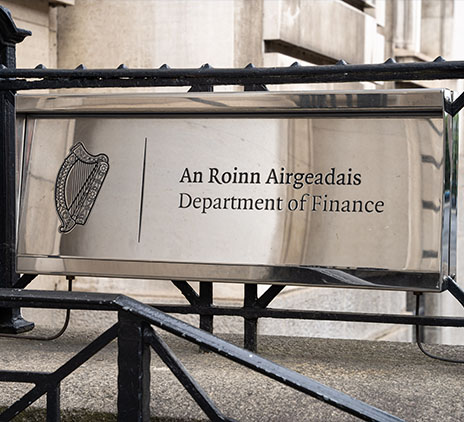-
Aviation Advisory
Our dedicated Aviation Advisory team bring best-in-class expertise across modelling, lease management, financial accounting and transaction execution as well as technical services completed by certified engineers.
-
Consulting
Our Consulting team guarantees quick turnarounds, lower partner-to-staff ratio than most and superior results delivered on a range of services.
-
Business Risk Services
Our Business Risk Services team deliver practical and pragmatic solutions that support clients in growing and protecting the inherent value of their businesses.
-
Deal Advisory
Our experienced Deal Advisory team has provided a range of transaction, valuation, deal advisory and restructuring services to clients for the past two decades.
-
Forensic Accounting
Our Forensic and Investigation Services team have targeted solutions to solve difficult challenges - making the difference between finding the truth or being left in the dark.
-
Financial Accounting and Advisory
Our FAAS team designs and implements creative solutions for organisations expanding into new markets or undertaking functional financial transformations.
-
Restructuring
Grant Thornton is Ireland’s leading provider of insolvency and corporate recovery solutions.
-
Risk Advisory
Our Risk Advisory team delivers innovative solutions and strategic insights for the Financial Services sector, addressing disruptive forces, regulatory changes, and emerging trends to enhance risk management and foster competitive advantage.
-
Sustainability Advisory
Our Sustainability Advisory team works with clients to accelerate their sustainability journey through innovative and pragmatic solutions.

-
 Asset management Asset management of the futureIn today’s global asset management landscape, there is an almost constant onslaught of change and complexity. To combat such complex change, asset managers need a consolidated approach. Read our publication and find out more about what you can achieve by choosing to work with us.
Asset management Asset management of the futureIn today’s global asset management landscape, there is an almost constant onslaught of change and complexity. To combat such complex change, asset managers need a consolidated approach. Read our publication and find out more about what you can achieve by choosing to work with us. -
 Internal Audit Maintaining Compliance with New EU Pension Directive IORP IIOn 28 April 2021, the Irish Government transposed IORP II (Institution for Occupational Retirement Provision), an EU directive on the activities and supervision of pension schemes, into law.
Internal Audit Maintaining Compliance with New EU Pension Directive IORP IIOn 28 April 2021, the Irish Government transposed IORP II (Institution for Occupational Retirement Provision), an EU directive on the activities and supervision of pension schemes, into law. -
 Risk, Compliance and Professional Standards FRED 82 – Periodic Updates to FRS 100 – 105The concept of a new suite of standards for the UK and Ireland, aligning with international financial reporting standards, was first conceived in 2002
Risk, Compliance and Professional Standards FRED 82 – Periodic Updates to FRS 100 – 105The concept of a new suite of standards for the UK and Ireland, aligning with international financial reporting standards, was first conceived in 2002 -
 Audit and Assurance Auditor transition: how to achieve a smooth changeoverAppointing new auditors may seem like a daunting task that will be disruptive to your business and a drain on the finance function. Nevertheless, there are a multitude of reasons to consider a change, including simply seeking a ‘fresh look’ at the business.
Audit and Assurance Auditor transition: how to achieve a smooth changeoverAppointing new auditors may seem like a daunting task that will be disruptive to your business and a drain on the finance function. Nevertheless, there are a multitude of reasons to consider a change, including simply seeking a ‘fresh look’ at the business.
-
Corporate Tax
Our Corporate Tax team is made up of more than 40 highly experienced senior partners and directors who work directly with a wide range of domestic and international clients; covering Corporation Tax, Company Secretarial, Employer Solutions, Global Mobility and Tax Incentives.
-
Financial Services Tax
The Grant Thornton team is made up of experts who are fully up to date in terms of changing and evolving tax legislation. This is combined with industry expertise and an in-depth knowledge of the evolving financial services regulatory landscape.
-
Indirect Tax Advisory & Compliance
Grant Thornton’s team of indirect tax specialists helps a range of clients across a variety of sectors including pharmaceuticals, financial services, construction and property and food to navigate these complexities.
-
International Tax
We develop close relationships with clients in order to gain a deep understanding of their businesses to ensure they make the right operational decisions. The wrong decision on how a company sells into a new market or establishes a new subsidiary can have major tax implications.
-
Private Client
Grant Thornton’s Private Client Services team can advise you on all areas of financial, pension, investment, succession and inheritance planning. We understand that each individual’s circumstances are different to the next and we tailor our services to suit your specific needs.


In this article, we summarise key expectations arising from the CBI’s thematic assessment of the embeddedness and effectiveness of conduct-focused culture at a cross-sector cohort of wholesale market firms.
While the latest assessment targeted MiFID firms, the CBI has expressed the expectation that all regulated entities should consider the findings.
This assessment followed CBI industry communications in 2019 and 2020, concerning the management of market conduct risk and securities market conduct risk respectively, as well as the 2021 publication of findings from the CBI’s review for compliance with Market Abuse Regulation (MAR). The CBI published its third annual Securities Markets Risk Outlook Report in March 2023, detailing key conduct risks to securities markets.
Key Themes and related Takeaways
1. Leadership and decision-making
To promote a firm’s desired culture, values and behaviours, leaders and management should lead by example, continuing to ensure a strong ‘tone from the top’.
Independent Non-Executive Directors should objectively challenge proposals, and the Board should adequately evidence the assessment of conduct risk, beyond “noting” conduct-related matters in meeting minutes.
2. Governance structures
Boards and Senior Management should demonstrate active ownership of conduct risk governance, including ensuring the effectiveness of frameworks for the identification and management of conduct risk.
3. Identification, assessment and monitoring
Boards should proactively ensure that conduct-related MI and reporting is appropriately granular, to enable an informed view on the embeddedness of desired culture (in Groups, the specifics of the local legal entity should be adequately assessed).
4. Responsibilities and expected behaviours
Firms should consider delivering tailored communications to staff, setting out expectations with regards to the management of conduct risk; and disseminating “lessons learned” from the firm’s errors management process, where applicable.
Delivery of relevant training can “cascade cultural values and expected conduct”, however firms should give due consideration to the frequency and timing of such training.
Senior Management responsibilities in relation to conduct risk management should be clearly articulated and understood.
The introduction of a Board-approved culture strategy is recommended. This should be supported by an implementation plan and monitoring of related initiatives and outcomes.
5. Speak-up culture
Firms should foster an inclusive "speak-up" culture and Group protected disclosure policies should contain adequate information on channels available for making protected disclosures and provisions specific to the local legal entity.
6. Hybrid working
Specific to their business models, firms should formally identify, assess and monitor the conduct risk considerations that arise in the context of hybrid working. Policies and procedures should formalise the management of conduct risk specifically arising from hybrid working arrangements.
Recommended next steps:
As a starting point, firms should consider sharing the outcome of the CBI’s thematic assessment with the Board, supplemented by a self-assessment against the expectations raised.
Our Services and Contacts
As part of its conduct risk offering, Grant Thornton regularly advises firms on the design and implementation of conduct risk frameworks and related governance arrangements. Our multi-disciplinary team has deep expertise and is comprised of cross-jurisdictional retail and wholesale conduct and risk professionals (including individuals with significant wholesale market industry experience, and some formerly holding senior supervisory roles at the CBI and the Prudential Regulatory Authority).
We are positioned well to assist your firm with conduct risk and culture-related matters, including assessing your firm against the CBI’s expectations and recommendations.
Examples of how we can practically support you include:
Governance and Risk Management Framework support
- Board effectiveness assessment
- Wholesale Market Risk Framework design, development, training and implementation
- Wholesale Market Conduct risk inspection/thematic review preparation
- MI framework development, and dashboard design (including assisting in the development and calibration of early warning indicators and risk appetite limits)
- Risk Mitigation Plan (RMP) - remediation support
Culture
- Organisational culture and behavioural assessment
- Organisational culture framework design
- Risk culture awareness (including in-depth interviews, board reviews and tailored training)
- Identification of cultural and behavioural drivers
- Culture reviews as part of an internal audit plan
IAF
- Advice and support on IAF readiness, including implementation assurance











